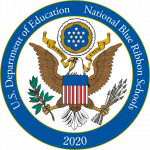Earlier this month I had the great honor of participating in our eighth grade graduation ceremony. The student speeches were as moving as always as they reflected on their Yavneh education and what lies ahead. I was struck by a sentence in one of those speeches in which the graduate declared: “Yavneh taught me how to examine problems and fix them, even if they felt impossible.”
This statement is far from simple and gets to the very heart of a Yavneh education. It’s exactly what we strive for – graduating students who have the compassion, determination, and ability to take on real problems and the courage to move past their comfort zone to fix them. It demonstrates our Mission of academic excellence, fostering curiosity, and ingraining a love of learning as well as our Fundamental Beliefs focused on relevancy, diversity, dynamic Jewish learning, and the importance of community.
In order to fully appreciate this declaration, we need to unpack it and examine what was needed to bring this to fruition. Before a student can examine a problem, they need to be deeply engaged in the content. Yavneh faculty create curriculum that is relevant and meaningful. We explicitly teach how to be critical thinkers and readers through numerous strategies including Chevruta Learning (learning in partnership). Equally important, we teach our students to care about others and instill in them the confidence that they can be the change makers and take on big problems.
Whether in classrooms on Zoom or on campus, I witnessed this deep engagement in all of our classrooms. The secret of our success is that this type of learning is fun – the interactive and emergent approach to lessons requires students to be active learners. It’s not about having an entertaining teacher; lasting enjoyment comes from meaningful interactions, connections, and learning. I watched the joy when students experienced the “aha” moment of a mathematical concept “clicking”, recognized the beauty in a piece of literature, and felt empowered to interpret and make a relevant connection to a passage of text.
I know that our graduates appreciated the fun of learning and hope that they continue a lifetime of learning in which the content is meaningful and lead to their continued examination and solving of problems.


